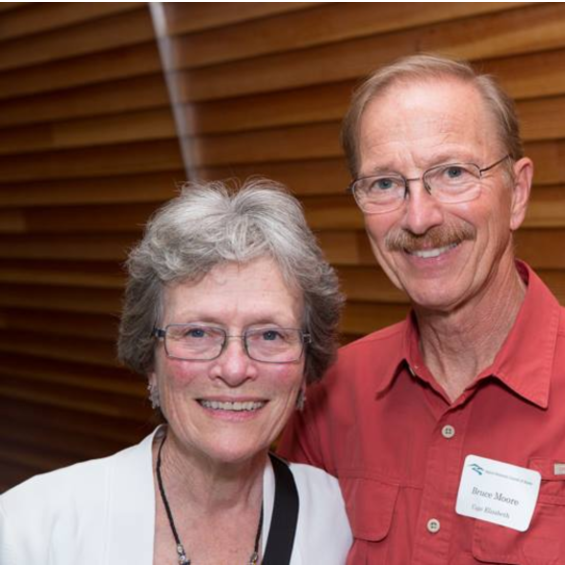
Recently, we talked with Bruce Moore ’76 and his wife Jan Chapman, reflecting on Bruce’s experiences as a student at the University of Southern Maine (USM) and the reasons they have decided to plan a future gift to support the University.
Bruce began at the USM in the fall of 1972, just months after leaving Okinawa, Japan, where he was stationed as a conscientious objector during the Vietnam War. Jan graduated from college in 1970, while students on her campus and throughout the country were on strike protesting the war. Some years later, they would meet on a blind date at Amigos, a venerable Portland, Maine, restaurant, where they discovered they had a lot in common.
Below are excerpts from our conversation with Bruce and Jan.
What was it like to be a student at USM—aka PoGo U—in 1972?
I returned home to Maine after two years on Okinawa just in time to enroll in fall courses. It was the University of Maine at Portland-Gorham then—and I really wanted to get back to school. I was very impressed with USM’s Political Science Department, so I chose that as my major.
I had four great political science professors, including two who became my advisors. They helped me make a lot of decisions along the way, and I thought: “Well, this is what you want from a college. You don’t want to be just a student; you want to be part of the school.”
Of course, it was during Watergate. I had subscriptions to Time magazine and The New York Times. We discussed it in class, and then you could go home and watch the hearings on TV. There were only 15 of us majoring in political science, and some of them became lifelong friends. I also took sociology and statistics classes and met friends in other majors, including other veterans. I felt welcome because there were older students like me.
The key is that I really felt like I was part of the community at PoGo U. And it kept on going because I kept running into more of my friends from college all through my career.
Were there pivotal USM experiences that stand out?
I was fortunate to get an internship in the State Division of Community Services, which was involved with the childhood poverty count in Maine, something I knew about having grown up in poverty myself.
They sent me to the Division of Economic Analysis and Research, where I got to know some of the people who were researching Maine’s unemployment rate. I ended up doing a paper on people who were counted as “discouraged workers.”
Later, after going to graduate school, that USM experience really helped me. I got a job working at the Comprehensive Employment and Training Act program for Kennebec County, and then back here in Cumberland County, helping welfare recipients get training and job placement.
Eventually, I moved from employment and training into real estate, but I’ve had a lot of experience in the nonprofit sector. I was on the board of United Way and chairman of the board of PROP (People’s Regional Opportunity Program), the local community action agency, and we are still very active in Portland Rotary.
What motivated you to consider a planned gift to support USM?
I grew up on welfare with a single mother and was the first and only one of my siblings to go to college. That was the impetus.
We were revising our wills and thinking about charities…and about the importance of education. As an alum, I wanted to be sure that USM benefited from our good fortune. We feel really good about giving to a public university that serves the community. USM is a community resource for everybody.
Are there particular areas you intend your gift to support?
We are particularly interested in supporting scholarships, including scholarships for the ROCC (Recover Oriented Campus Center) program at USM. Jesse Harvey (a leader and advocate in the recovery community) was a member of our Rotary Club. He started a recovery task force that still continues. We support a scholarship at the USM Foundation that was established in his memory.
We believe that everyone who wants to get higher education should be able to have that opportunity. USM does a lot to help students who are disadvantaged, and supporting those programs is important to us. We’ve had USM in our estate plan for a long time, but after meeting with folks at the USM Foundation, we’ve honed our plans for a future gift.
What do you hope will be the long-term impact of your gift?
We look at our gift as an investment that will create opportunities for people who are trying to get a good education and prepare for a better future. We are strong believers in the importance of education. It makes life better and you make friends and connections that you wouldn’t make anywhere else.

